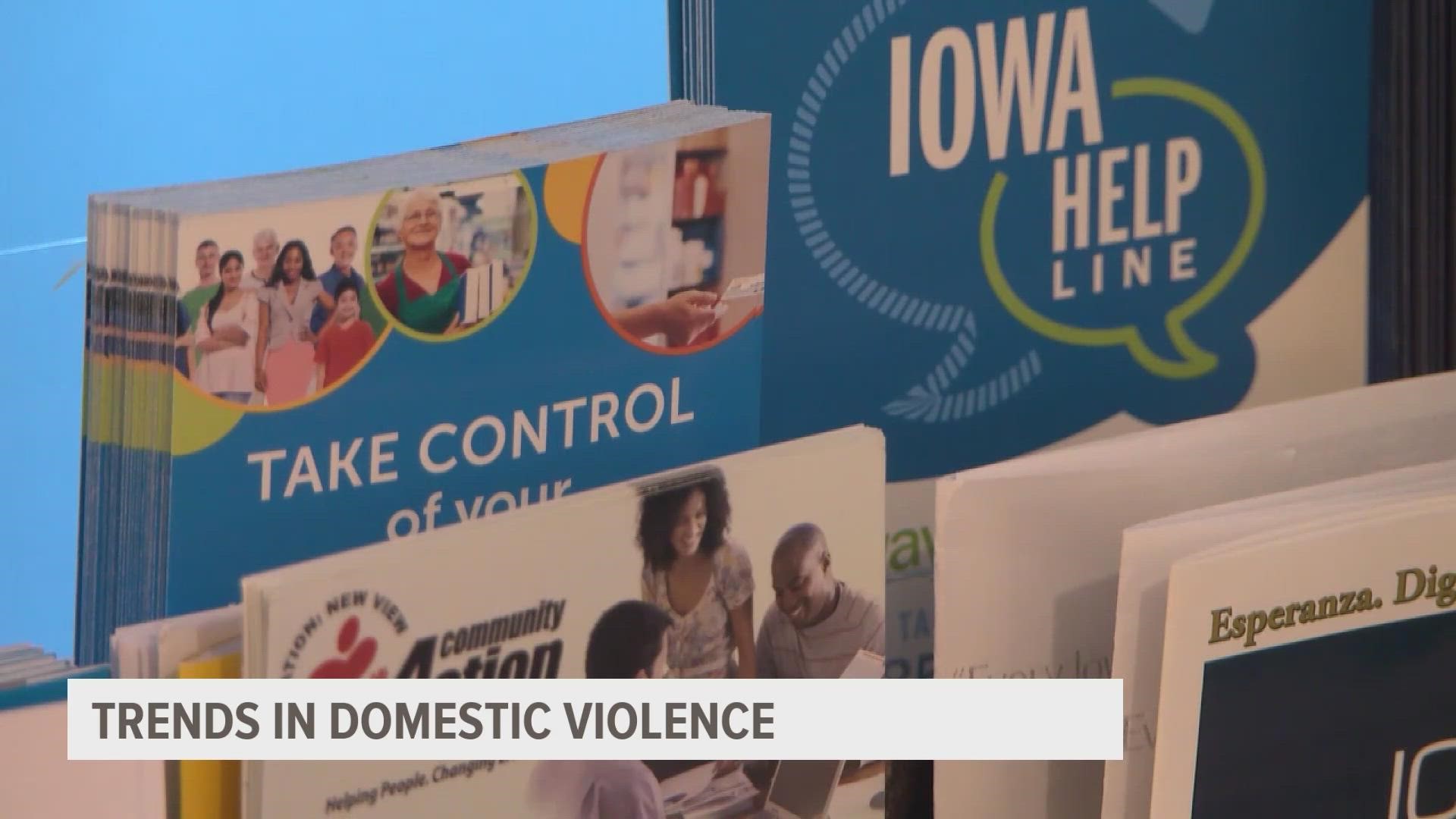DES MOINES, Iowa — Following a fatal murder-suicide in Waukee involving two people in a relationship, the push to address domestic violence in Iowa is more urgent than ever.
Advocates say that one of the most dangerous times for victims of domestic violence is when they're preparing to leave the relationship. But many survivors lack the resources to leave safely.
According to the Iowa Coalition Against Domestic Violence, there's a lot of reasons for that. One example is that victims often don't have legal assistance to separate from an abuser.
They also say that blame from friends and family members can make the decision to leave much more difficult.
"Anytime that you add in additional stress, additional hardship into an already vulnerable situation, a victim of violence is going to just be more susceptible," said Lindsay Pingel, director of community engagement with the Iowa Coalition Against Domestic Violence.
Research has found that 65% of all murder-suicides involve an intimate partner. 96% of the victims in those cases are female.
Iowa isn't immune to this problem: in the Des Moines metro alone, there have been three confirmed murder-suicide attempts in the past two months.
If you believe that someone you know is in danger due to domestic violence, there are resources available. Iowa has more than 20 service providers that provide resources for victims and supporters across all 99 counties, and most are available whenever you might need them.
"We have advocates who are available 24 hours a day, seven days a week that you can talk to and just kind of go over a situation and get some tips and support around helping someone in your life," Pingel said.
But if you want to talk directly to a friend who may be in trouble, starting that conversation can be hard. Advocates say the best thing that you can do is to let a survivor know you want to help, but allow them to decide exactly what that means.
"The first thing I would ever ask anyone or invite someone to ask them when they're concerned about is just to say what does safety look like for you. What do you need right now in this moment, and then let the survivor kind of guide what that looks like," Pingel said.
If you are someone you know needs any of the resources discussed here, the number for the Iowa Victim Service Call Center at 1-800-770-1650.

